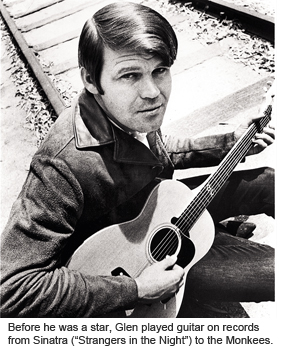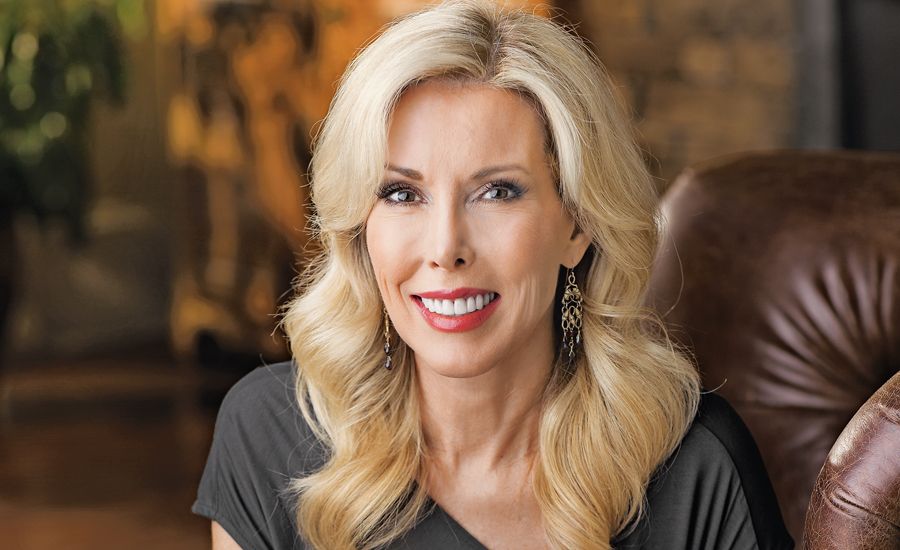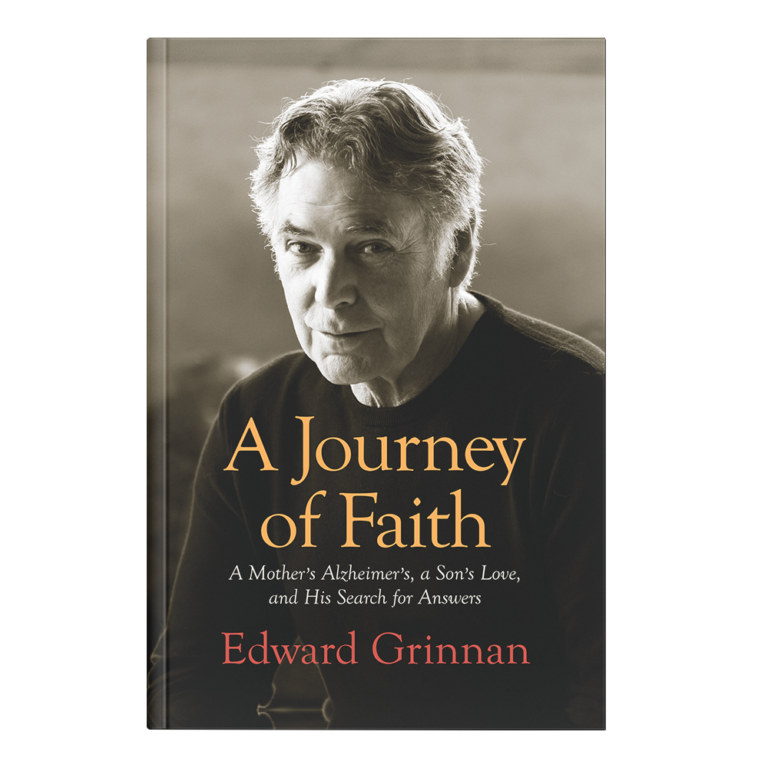“Mr. Campbell, how are you feeling today?” the neurologist asked my husband, Glen. “Can you tell me where you are right now?”
I’d taken Glen to Vanderbilt University Medical Center that morning in March 2013 for what I assumed would be a routine appointment. We’d moved to Nashville to be closer to family and friends, and I wanted to establish a relationship with a local doctor.
Glen just stared at his feet. I wasn’t surprised that he couldn’t answer the doctor’s questions. Or that it took an hour of coaxing before he would lie still for a CT scan. It had taken me and another member of his care team almost that long to get him in the car for the drive over. I was used to Glen’s behavior. I’d been his primary caregiver since he’d been diagnosed with Alzheimer’s disease, in 2011.
The neurologist took me aside after all of the tests had been concluded. “Mrs. Campbell, from what I’ve seen today and from what you’ve told me about his behavior, I can’t believe you’re still trying to manage this at home. It’s clearly not safe for him or you. I’m going to have a social worker contact you.”
Read More: How Caregivers Can Take Care of Themselves
I was stunned. The doctor didn’t understand. Who knew Glen better than I, his wife of 31 years? He needed to be close to me. We had promised each other “for better or for worse,” and even to think about him moving out of our home felt like a breaking of our marriage vows.
I first met Glen in New York in 1981. I was a dancer at Radio City Music Hall and he was in the city giving a concert. We were immediately drawn to each other and bonded over our faith in God. Soon we were engaged. I was on cloud nine, even though I realized Glen had a drinking problem. We got baptized together before we were married, and I believed that God would help him overcome his addiction.
After four years of heartache at the start of our marriage, that’s exactly what happened. For 15 wonderful years he was sober and we discovered a deeper meaning to our relationship with each other and with God.
But one day in 2003 I smelled alcohol on Glen’s breath and alarm bells went off. He insisted he was fine. That November, he was arrested for driving under the influence. He finally sought help, checking into rehab. Through his treatment, we found out that he had been anxious about going on tour and being away from home for prolonged periods. So we decided as a family to lighten his touring schedule.
Things settled down after that. Glen stayed sober and seemed his usual happy self. Our sons, Cal and Shannon, were both in bands and following in their dad’s footsteps. Our daughter, Ashley, was in college. Life was good again. Or so I thought.
When Glen started shadowing me everywhere, trailing five steps behind, I was puzzled. “I just like being around you,” he said with that boyish charm I’d fallen for back when we first met. So I was more flattered than worried by his behavior.
He got a little forgetful. He laughed off his senior moments, and I did too. After all, he was 22 years older than me. I reminded him about appointments and answered the questions he started to ask over and over as patiently as I could.
Still, I thought it might be a good idea to take him to a neurologist. In 2009 he was diagnosed with mild cognitive impairment. The doctor told me that sometimes it developed into Alzheimer’s and sometimes it didn’t, so I should bring him back regularly for checkups.
Over the next few years, Glen’s memory worsened. He got lost on the way home from the golf course. He asked questions like, “Where’s our bedroom?” His shadowing was almost smothering. He didn’t want me out of his sight. Despite all of this, Glen was still Glen. He played golf, toured and recorded an album, Ghost on the Canvas.

Glen and I went to his neurologist for his regular checkup. “Glen is in the early stages of Alzheimer’s,” the neurologist said. “It’s a progressive disease that steadily erodes a person’s memory, their mental capacity, thought process and ability to communicate. There is no cure. The most we can do is try to slow the symptoms.”
The questions would not stop flowing out of me. How long would Glen have to live? What could I do to help him? Should he do the tour?
“I don’t see why not,” the doctor said to the last question. “If he can still perform at the level he needs to, I think the tour could actually be good for him.”
Glen decided to go public with his diagnosis. He wanted to shine a light on the disease and encourage the search for a cure. His producer, Julian Raymond, introduced us to a filmmaker, James Keach, and Glen asked him to document his tour and show people what living with Alzheimer’s is like.
Read More: Tips on Caring for a Loved One with Late-Stage Dementia
Still, we were all wondering: Would anybody want to come and see someone with Alzheimer’s perform?
The first concert was in August 2011. It was sold out, standing room only. I stood in the wings, praying. But from the time Glen walked onstage, he was treated to thunderous applause and a wave of standing ovations.
With a teleprompter to help with lyrics, Glen played and sang his heart out. It was like a light had been turned on. I could see God working through him. The support from his fans was amazing. At the end, the crowd gave him another standing ovation. The band took a bow with him and they walked off the stage together.
The doctor didn’t understand. Who
|
I wrapped my arms around Glen. “You were wonderful,” I said.
He gave me a kiss and said, “We are so blessed.”
Yes, we were. God had given him the gift of music and it was still very much intact.
What started out as a five-week farewell tour turned into 151 shows. I helped Glen get ready before each performance. We made it through by keeping our sense of humor and cherishing every moment we had together. Glen’s final show was on November 29.
After the tour, we decided to move to Nashville. Ashley and Shannon had gone there to pursue music. It was only a five-hour drive from Glen’s daughter Kelli and his brothers and sisters in Arkansas. There were so many musicians based in Nashville that Glen loved to play with, friends we’d reconnected with during the tour. I knew that we would have all the love and support we would need as his Alzheimer’s progressed.
We bought a single-story house with enough bedrooms for multiple live-in caregivers. Even with six of us looking after Glen, we weren’t prepared for some of the challenges that can manifest themselves in the later stages of Alzheimer’s—hallucinations, paranoia and physical combativeness.
Glen got into everything. I put child safety locks on our cabinets, but they were no match for his strength. He tried to play with the stove. We used a motion-sensor alarm for when he wandered at night. We were all exhausted from the alarm constantly going off. Glen would put everything in his mouth, from soap to glue, and got aggressive if we tried to wrestle it from him.
“I can’t believe you’re still trying to manage this at home,” Glen’s neurologist at Vanderbilt had said. Maybe he was right. Maybe this was too much for me. Would it hurt to educate myself about options, just in case?
The social worker called and gave me a list of places that specialized in memory care. I found one that reminded me of the nice hotels we stayed in on tour. Glen would be comfortable there. And safe. It was a community designed for people who have Alzheimer’s or other dementias, offering daily activities that help keep them engaged and stimulate the brain.

I watched her lead him down the hall, feeling like he was being led away from me forever. Alzheimer’s had taken so much from us. Caring for him was all I had left. Was I losing that too?
That afternoon, I went to pick up Glen. I found him sitting at a table, looking at photos in a book. He was much calmer than he’d been at home lately.
“Glen had a great day,” the aide told me. “In one of our groups, he played ‘Gentle on My Mind’ for everyone. When he was finished, he took a bow and said, ‘I want to thank y’all for coming out today.’ Then he took a nap on the sofa. He seemed happy to be here.”
A gentle warmth settled over me, a feeling I hadn’t known for a long time: peace. God hadn’t been trying to take Glen away from me. He had been leading us to what was best for Glen, even when I couldn’t quite see it on my own.
We tried the memory-care place for a month. It was clear Glen was safer and more content there than at home. He had access to medical care 24 hours a day. After talking with his care team and his consulting neurologist, Dr. Ron Petersen, of the Mayo Clinic, Glen moved into the community.
When I am not continuing his work of raising awareness about Alzheimer’s, I am there with Glen. I bathe and dress him. I eat with him. We cuddle. He’s lost most of his language skills, but he can still say, “I love you.” Occasionally I will see him look up and raise his hands and say, “Thank you, Heavenly Father.” It brings me tremendous comfort to know that Glen is still communing with God and sensing his presence.
Moving Glen was one of the hardest decisions I’ve ever had to make. It is intensely sad to lose someone you love to this disease. But I know God is with Glen and me, and we are not walking this road alone. There are five million families in this country walking it with us, struggling, laughing, grieving and praying.
Alzheimer’s takes so many things from us, yet it cannot take these three: faith, hope and, the greatest of all, love.
Learn more about caring for a loved one with late-stage dementia.






